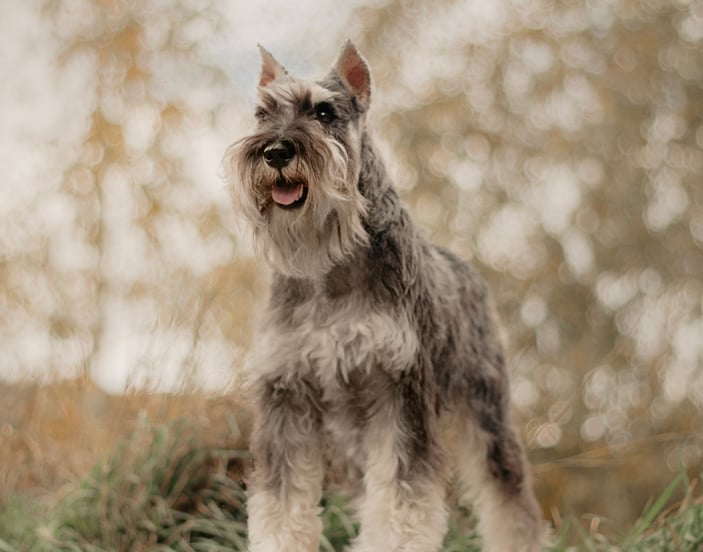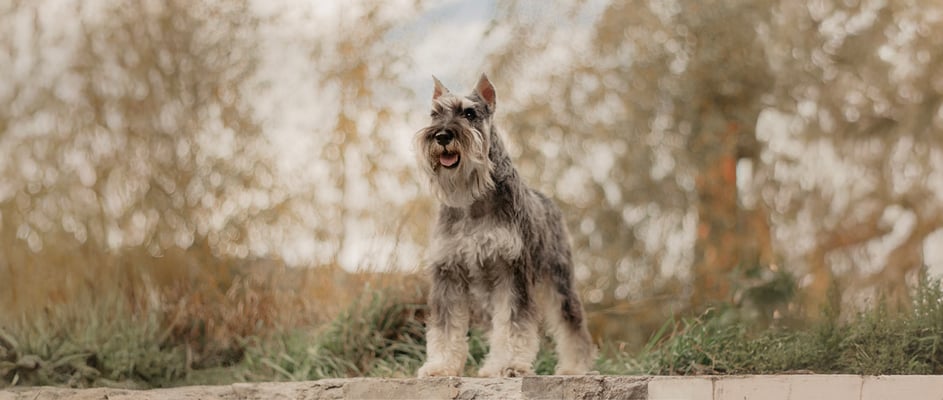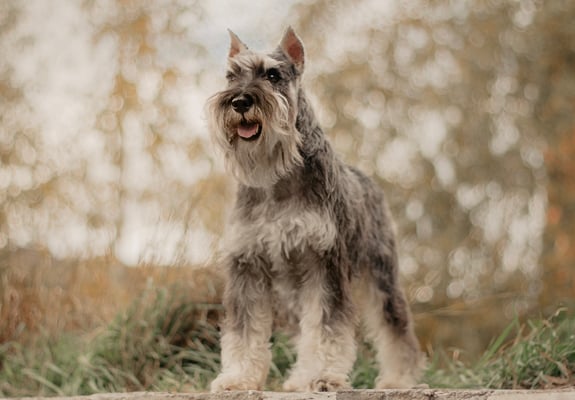The guide to owning a Miniature Schnauzer.
Want to know everything there is to know about finding the right dog for you? Submit your email below, and we’ll send you a one-stop guide to help you on your pet-ownership journey.
Jump to:
Stats at a glance.
A history of Miniature Schnauzers.
Say hello to the Miniature Schnauzer, a breed that began its tale in 19th-century Germany. Folks there wanted a smaller Schnauzer who could handle farmyard vermin, so they carefully crossed the standard Schnauzer with smaller breeds like the Poodle, maybe the Affenpinscher, and a few local Terriers to create a feisty rascal.
That signature beard and expressive eyebrows helped them stand out from day one.
They started as rat-catching farm dogs, but we soon fell in love with their good looks and lively temperament. This is the smallest of the three Schnauzer types, and many fans admire them for their loyalty, intelligence, and adorable whiskers.
They might be small, but these bright dogs have a huge personality tucked inside that wiry frame.
Want to learn about another special companion? Take a look at our guide to small dog breeds for more petite pups that might capture your heart.


How much is a Miniature Schnauzer puppy (UK)?
When you look for a Miniature Schnauzer puppy in the UK, you might see prices that hover around £800–£2,500.
Exact costs can vary based on lineage, breed club endorsements, and each breeder's reputation.
Always remember that any further training, vaccines, and possible health test fees can become part of the overall price tag.
For advice on picking a new pup, take a peek at our essential guide to buying a puppy.
Here's what to look for in a reputable breeder:
They welcome you to meet both parents.
They show up-to-date vet records and mention hereditary checks.
They ask about your home life to ensure a perfect match.
They show genuine concern for each individual dog in their care.
Colours and coat types.
Like their bigger cousins, Miniature Schnauzers come in a variety of coat shades. The Kennel Club breed standard recognises salt and pepper, black and silver, or solid black and solid white. You may also see some less-common mixtures, but these three colour patterns are the best known.
Their double coat is something to admire. They have a wiry top layer, plus a softer undercoat to keep them warm.
That whiskered face demands regular groom care though, especially around those eyebrows and signature beard.
Want tips on caring for that fabulous fur? Our dog shampoos for itchy skin article highlights the right products to keep your Mini Schnauzer feeling fresh.





Size and weight.
These charismatic companion dogs may be small, but do not underestimate their energy. Take a look:
Height: 30-36cm (at the shoulder).
Weight: 5-9kg.
They fit nicely into most living spaces, but they still need daily walks and mental stimulation to stay healthy.
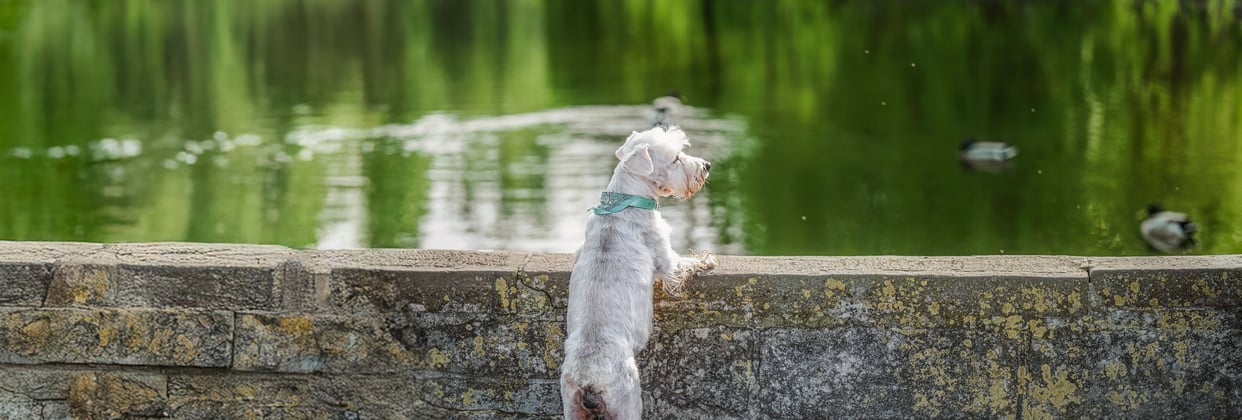

Temperament.
The Miniature Schnauzer might be tiny, but this dog breed has spirit for days. They are alert and spirited, often described as bright, playful, and incredibly loyal. They love to learn new tricks, especially as part of their routine training.
Do Miniature Schnauzers make good pets?
Yes, Miniature Schnauzers make wonderful family pet choices. They are affectionate, sociable, and protective of their loved ones. They are known to be incredibly affectionate and thrive when they feel part of the household.
Do you want a devoted partner for your next adventure? You might enjoy our guide to the best family dogs in the UK.
Are Miniature Schnauzers good with kids?
They get along well with older children who understand how to handle small dogs gently. Young kids need supervision to avoid mishaps, so keep an eye on that precious beard since some toddlers see it as a perfect handle!
Are Miniature Schnauzers good with cats?
Many Miniature Schnauzers adapt well to feline friends if socialised early. Their high prey drive sometimes shows up around small animals, but supervised introductions can make them living-room buddies.
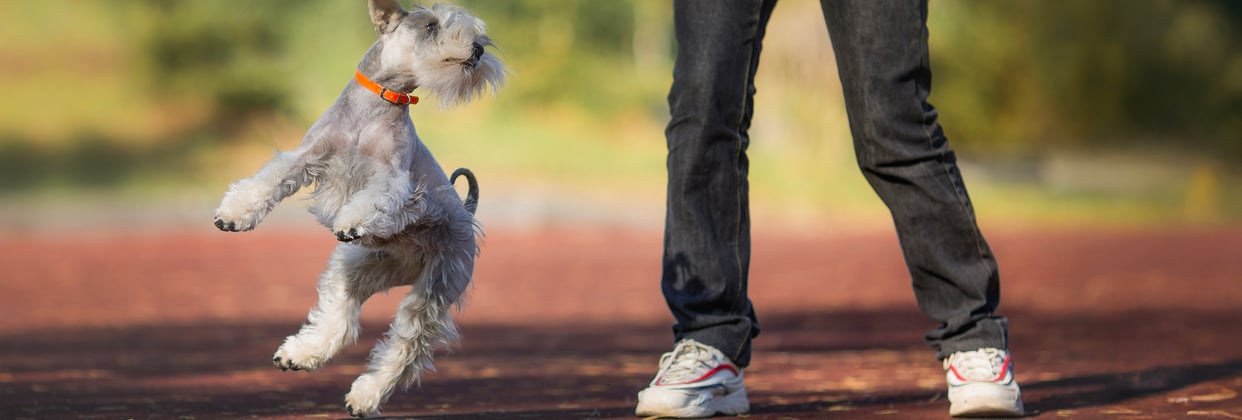

Behaviour.
Do Miniature Schnauzers suffer from separation anxiety?
They are social pups who adore being by your side. Extended absences can stress them out, so plan for a dog walker or consider doggy daycare if you’re away for hours.
If you worry about leaving them alone, our guide to managing separation anxiety in dogs might ease your mind.
Can Miniature Schnauzers be left alone?
While every individual dog differs, most Miniature Schnauzers cope better with short time spans alone, especially if they have toys and a comfy retreat. Too much solitude, though, can lead to boredom barks or destructive mischief.
Can Miniature Schnauzers live in apartments?
Absolutely. These pups adapt well to apartment lifestyles if you provide walks, games, and mental tasks to satisfy their active little brains.
Do Miniature Schnauzers bark a lot?
They can be vocal, especially when they feel protective. Training them to recognise normal household sounds can help. Their watchful nature is a big part of why many folks see them as excellent watchdog companions.
Training a Miniature Schnauzer.
Are Miniature Schnauzers smart?
Yes. They are known as bright dogs who are usually easy to train. Their eagerness to please makes them quick learners, but they still appreciate variety.
Here’s how to succeed with Mini Schnauzer training:
Start early and keep it consistent.
Use positive reinforcement (treats and praise).
Break it into short, varied sessions (they can get bored!).
Never use harsh methods. Encourage them instead.
Focus on problem areas like barking and recall, because Miniature Schnauzers like to investigate.
If you’d like more structured tips, our guide to puppy training can get you started.


Shedding and grooming.
Despite their wiry coat, Miniature Schnauzers are a relatively low-shedding breed. That being said, they do need frequent brushing to prevent knots and keep that underlayer fresh. Clipping every couple of months or hand-stripping the wiry topcoat helps maintain the classic shape.
How often should I brush my Miniature Schnauzer?
Aim for a quick comb or brush a few times a week. Don’t ignore that adorable facial hair as it traps food and drool, so a quick clean can work wonders.
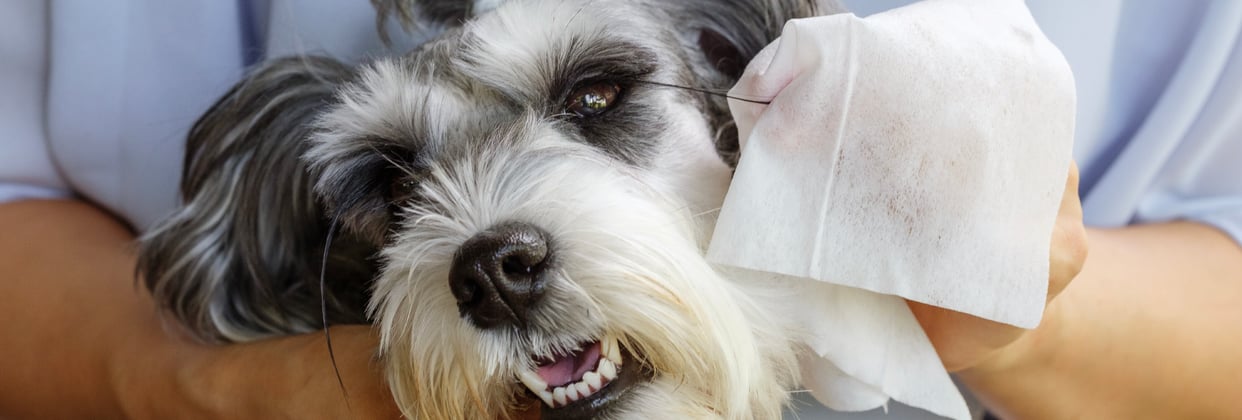

Exercise and mental stimulation.
Miniature Schnauzers have moderate exercise needs, usually around 40-60 minutes a day. They love walks, treasure hunts, and dog puzzles. Because they are from the utility group, they are versatile enough for agility or obedience events too. Engaging them can reduce unwanted behaviours sparked by pent-up energy.
Activities to try:
Gentle neighbourhood walks.
Dog sports like agility or rally.
Fetch or hide-and-seek with squeaky toys.
Brain teasers, including puzzle feeders.
If you need extra ideas, our guide to making your dog happy has creative suggestions.
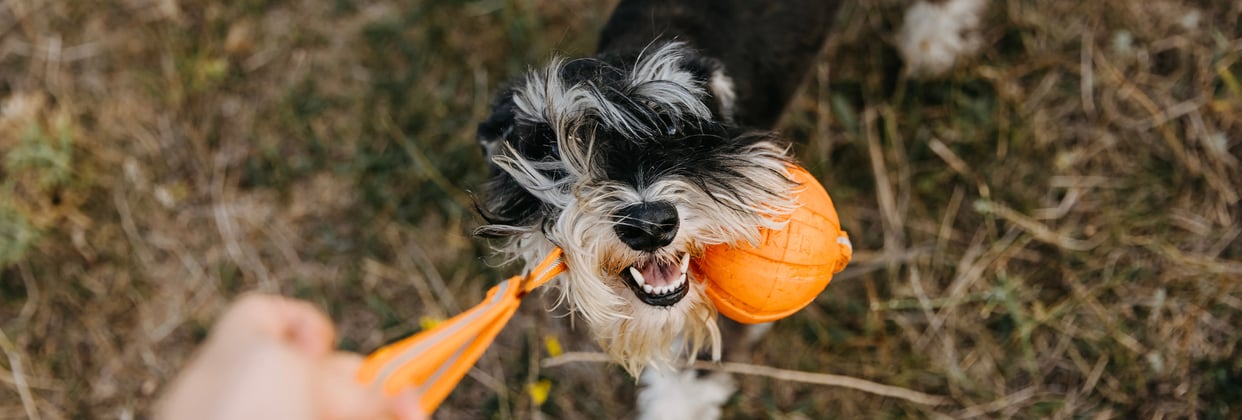

Feeding and nutrition.
Miniature Schnauzers often do well with quality kibble that balances protein and moderate fat content. Watch their waistline: too many treats can trigger health issues like pancreatitis, especially if they consume excessive fats.
Here’s a general guide, though your vet can give you personalised advice:
¾–1 cup of quality food each day, split into two meals.
Adapt amounts to your dog’s age, activity, and weight.
Offer healthy treats (like safe fruits or veg) sparingly.
Common health issues in Miniature Schnauzers.
While Miniature Schnauzers are generally healthy, they can still face certain conditions. Here’s a look at what you might expect:
Costs can vary based on your location and the severity of the condition. Early detection and special attention to your pup’s routine check-ups can help keep these issues manageable.
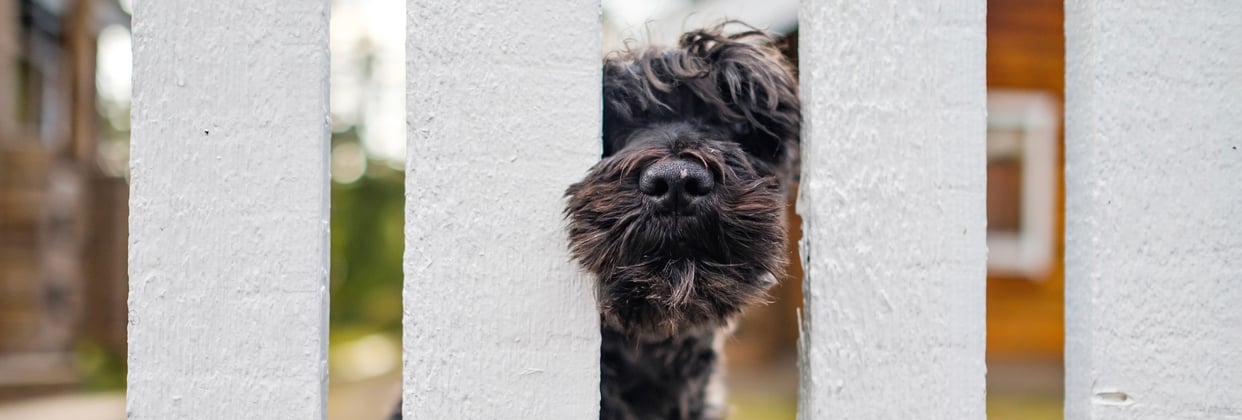

Pet Insurance for Miniature Schnauzers.
Because they’re small yet active, Miniature Schnauzers can face unexpected vet bills. Their risk of certain conditions (like Schnauzer comedo syndrome or a liver shunt) reminds us that having pet insurance is a smart idea.
That way, your dog receives the best veterinary help without your wallet taking too hard a hit.
At Waggel, we offer Lifetime coverage that includes ongoing care for chronic conditions, plus 24/7 online vet visits to guide you whenever worry strikes. Click here to get Waggel pet insurance for your Miniature Schnauzer.
Miniature Schnauzers are loyal, spunky, and robust little dogs that light up our homes. With consistent training, cheerful exercise, and proper health checks, your whiskered friend will be beside you for many happy years to come.
We hope this guide sets you on the right path toward a wonderful friendship with your new furry companion.
